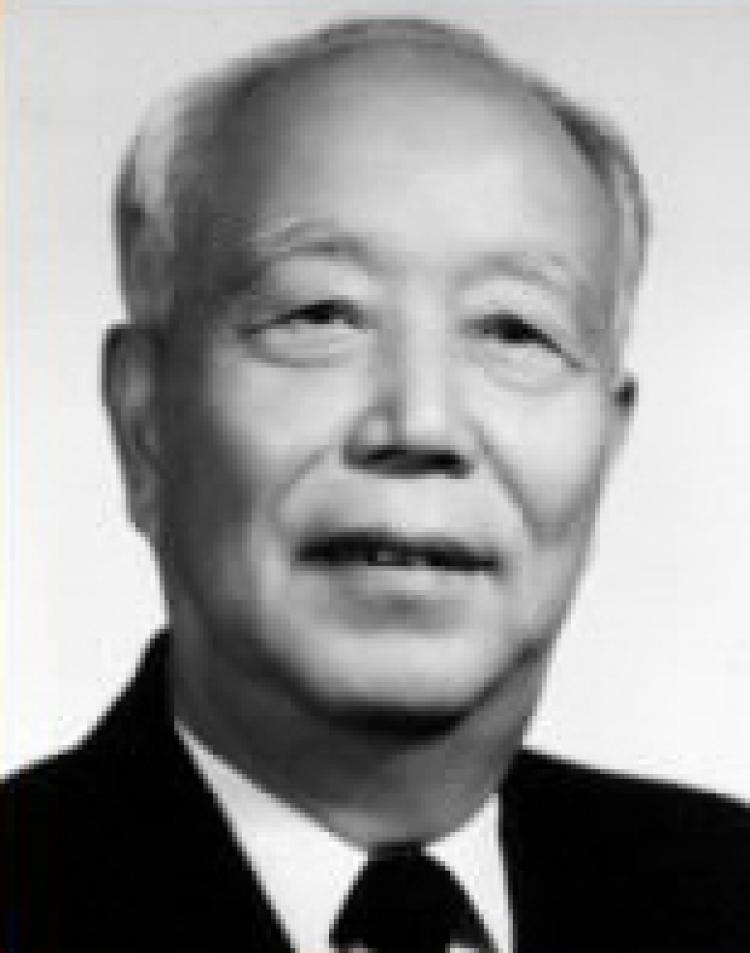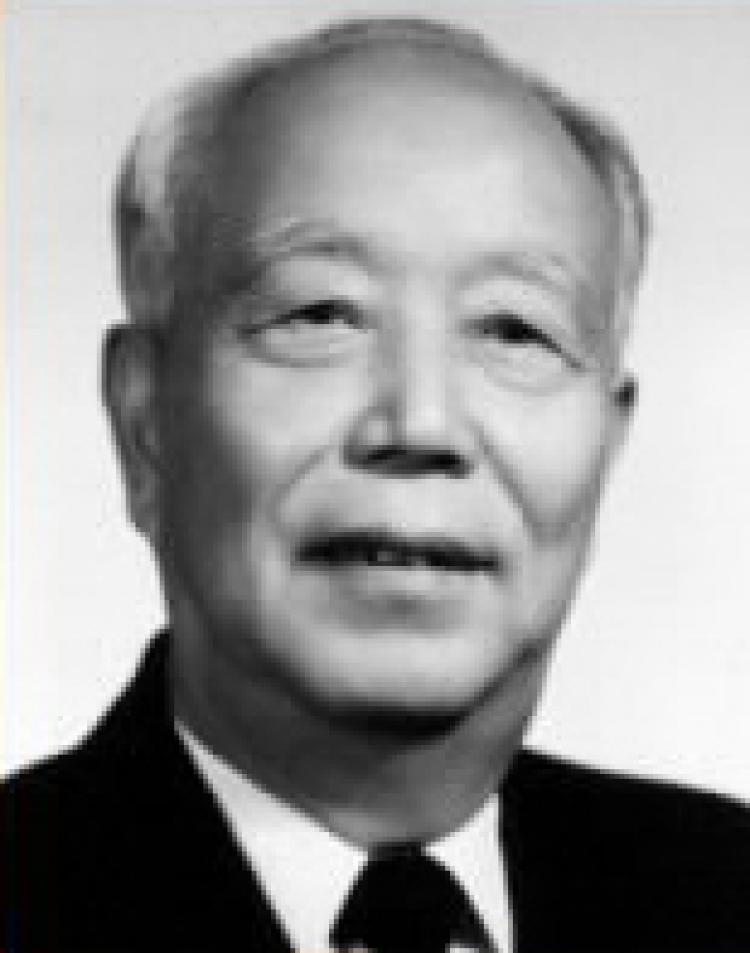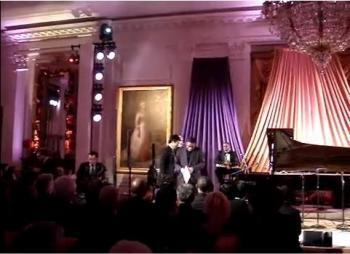A ten-thousand word political essay damning the rule of the Chinese Communist Party (CCP) has attracted attention from Chinese dissidents recently, while websites carrying it are blocked inside the mainland
The essay, entitled The Ruling Party Must Establish Basic Political Ethics, is thought to be the summary of four conversations between an elder Chinese statesman and a young professor from the Party School of the Central Committee of the CCP. Its authorship is unknown, but many suspect the statesman featured in the essay to be Wan Li, former secretary of the Central Committee Secretariat and former Chairman of the National People’s Congress—the most important Party bureaucratic organ, and a rubber-stamp legislature respectively.
Though the essay includes sharp criticism of the CCP and has attracted much attention on the internet, Chinese authorities have so far failed to respond.
Zhang Weiguo, editor-in-chief of Hong Kong’s Trend magazine and the New Century Web site, told The Epoch Times that an “important person in Beijing” entrusted the New Century Web site to first publish the article on July 30. The identity of the elder statesman in the dialogue was not disclosed, however.
Zhang said he believes the author to be Wan Li, for a number of reasons. A source in Beijing he contacted said it was Wan Li, Wan has been one of the few high-level CCP veterans who dared to criticize the regime, and Chinese scholars inside the country that Zhang contacted also believed Wan Li to have written the letter.
This assessment is not universally supported, however. He Qinglian, a Chinese author and economist, indicated in an email response to questions from The Epoch Times that the letter could have been faked. “Some word usages [in the letter] aren’t what these kind of people use,” she wrote. “In a society where the peoples’ will is repressed, and where people are not given channels of expression, rumors are apt to multiply.”
Despite the claims and counter-claims of authorship, the article, which argues that the Party’s rule is “illegal and unethical,” and pins China’s apparent unrest over the years squarely on the communist Party, has triggered heated discussion on the internet. Tens of thousands of blog discussions have proliferated within the first week.
At the very beginning, the essay argues that “The Party has yet to register with the Ministry of Civil Affairs thus far. What’s behind this fact? It is that our country hasn’t had any ‘Political Party Law.’ It has lasted for 60 years, and this is still blank, there has been no change. Our country still has no modern political Party system.”
The essay also argues that there is no financial wall separating the Party treasury and the state treasury.
Central state organs “operate like underground illegal organs,” the essay says. “It is still the Party commanding the gun, the Party military has not been replaced with leadership by the state.”
The essay argues that “The Party comes before the country” rather than “The country comes before the Party.” For sixty years, the concept of “Party and state leaders” hasn’t changed, it says.
Wu Fan, President of the China Interim Government, a pro-democratic dissident group opposed to CCP rule, said that the discussion attempts to make the difference between China and the CCP clear. He believes the letter was written by Wan Li, and told The Epoch Times that “He [Wan] has devoted his whole life to the state and the Party,” adding that putting the country first is unprecedented among high-ranking CCP cadres.
“The past years of repeated setbacks we have suffered are all attributable to the Party’s internal struggles. I am grieved at this,” the letter reads. “For so many years we told the people that without the Communist Party there would be chaos. Their hope of stability becomes the ‘popular will’ for our Party’s sole grip on power. When can this cycle be broken?”
The speaker also calls for a process of reflection among Party elite: “Many people in our Party always get used to bragging that everything we are doing right now is correct. Then why don’t we commence a clear narrative of all that was not done right in the past? How can those things be made vague!?”
The contents of the essay advocate an alteration of Chinese society through reconstructing political ethics, according to Zhang, the Hong Kong newspaper editor. “No matter whether it is an individual, a political group, or a ruling party, they should be trustworthy and honest,” he says.
“Having established the country for 60 years, it is time to go back to the most basic question: What is the will of the country and the people?” the dialogue says. “The Soviet Union never figured it out, and in turn, the country and party was ruined after only 69 years.”
In the 1930s and 1940s the CCP publicly promised to build a democratic, free and independent country, according to the essay. But these promises were amended later. “My heart was severely shaken at that time … this was disrespecting history and essentially violating the ethics of politics … history will always give the truth back to the citizens … the citizens will have to find out,” the speaker says.
The full text of the near 10,000-word conversation piece has been circulated for over ten days on the web.
Previously, criticism from high-ranking Party apparatchiks—like that of Meng Weizai, former director of the Art Bureau of the Central Propaganda Ministry, who publicly renounced the Party—have been met with counter attacks in Chinese state media.
“Wan Li’s dialogue,” as the document is referred to, has been met with mere silence, however. Zhang Weiguo believes the Party fears responding to the talks, and that its silence implies that it has no response.
David Gao, head of the Global Center for Quitting the CCP, a volunteer organization which encourages Party members to renounce their allegiances, believes the dialogue reflects the feelings of “all party members with conscience and human nature.”
He attributes outpourings like the dialogue to “an inevitable process of conscience, courage and humanitarian revival” caused by the Nine Commentaries on the Communist Party, an editorial series published by The Epoch Times, and his organization’s efforts to encourage Party members to renounce the CCP.
“We have received phone calls from Zhongnanhai, very high ranking officials, and even the offices of high ranking CCP leaders. Staff members in the Policy Research Centre of the Central Committee are even studying the Nine Commentaries. They chose to quit the CCP after becoming clear about its nature, and developing a sense of responsibility to the country and people, as well as taking the wellbeing of others and themselves into consideration,” Gao said in an interview with The Epoch Times.
“Even though these people in the system have vested interests and social status, when they understand the truth [of the CCP’s rule] they reflect on it inside their hearts,” Gao said. “The more they understand, the more pain they feel.”
Read the original Chinese article.
The essay, entitled The Ruling Party Must Establish Basic Political Ethics, is thought to be the summary of four conversations between an elder Chinese statesman and a young professor from the Party School of the Central Committee of the CCP. Its authorship is unknown, but many suspect the statesman featured in the essay to be Wan Li, former secretary of the Central Committee Secretariat and former Chairman of the National People’s Congress—the most important Party bureaucratic organ, and a rubber-stamp legislature respectively.
Though the essay includes sharp criticism of the CCP and has attracted much attention on the internet, Chinese authorities have so far failed to respond.
Zhang Weiguo, editor-in-chief of Hong Kong’s Trend magazine and the New Century Web site, told The Epoch Times that an “important person in Beijing” entrusted the New Century Web site to first publish the article on July 30. The identity of the elder statesman in the dialogue was not disclosed, however.
Zhang said he believes the author to be Wan Li, for a number of reasons. A source in Beijing he contacted said it was Wan Li, Wan has been one of the few high-level CCP veterans who dared to criticize the regime, and Chinese scholars inside the country that Zhang contacted also believed Wan Li to have written the letter.
This assessment is not universally supported, however. He Qinglian, a Chinese author and economist, indicated in an email response to questions from The Epoch Times that the letter could have been faked. “Some word usages [in the letter] aren’t what these kind of people use,” she wrote. “In a society where the peoples’ will is repressed, and where people are not given channels of expression, rumors are apt to multiply.”
Despite the claims and counter-claims of authorship, the article, which argues that the Party’s rule is “illegal and unethical,” and pins China’s apparent unrest over the years squarely on the communist Party, has triggered heated discussion on the internet. Tens of thousands of blog discussions have proliferated within the first week.
At the very beginning, the essay argues that “The Party has yet to register with the Ministry of Civil Affairs thus far. What’s behind this fact? It is that our country hasn’t had any ‘Political Party Law.’ It has lasted for 60 years, and this is still blank, there has been no change. Our country still has no modern political Party system.”
The essay also argues that there is no financial wall separating the Party treasury and the state treasury.
Central state organs “operate like underground illegal organs,” the essay says. “It is still the Party commanding the gun, the Party military has not been replaced with leadership by the state.”
The essay argues that “The Party comes before the country” rather than “The country comes before the Party.” For sixty years, the concept of “Party and state leaders” hasn’t changed, it says.
Wu Fan, President of the China Interim Government, a pro-democratic dissident group opposed to CCP rule, said that the discussion attempts to make the difference between China and the CCP clear. He believes the letter was written by Wan Li, and told The Epoch Times that “He [Wan] has devoted his whole life to the state and the Party,” adding that putting the country first is unprecedented among high-ranking CCP cadres.
“The past years of repeated setbacks we have suffered are all attributable to the Party’s internal struggles. I am grieved at this,” the letter reads. “For so many years we told the people that without the Communist Party there would be chaos. Their hope of stability becomes the ‘popular will’ for our Party’s sole grip on power. When can this cycle be broken?”
The speaker also calls for a process of reflection among Party elite: “Many people in our Party always get used to bragging that everything we are doing right now is correct. Then why don’t we commence a clear narrative of all that was not done right in the past? How can those things be made vague!?”
The contents of the essay advocate an alteration of Chinese society through reconstructing political ethics, according to Zhang, the Hong Kong newspaper editor. “No matter whether it is an individual, a political group, or a ruling party, they should be trustworthy and honest,” he says.
“Having established the country for 60 years, it is time to go back to the most basic question: What is the will of the country and the people?” the dialogue says. “The Soviet Union never figured it out, and in turn, the country and party was ruined after only 69 years.”
In the 1930s and 1940s the CCP publicly promised to build a democratic, free and independent country, according to the essay. But these promises were amended later. “My heart was severely shaken at that time … this was disrespecting history and essentially violating the ethics of politics … history will always give the truth back to the citizens … the citizens will have to find out,” the speaker says.
The full text of the near 10,000-word conversation piece has been circulated for over ten days on the web.
Previously, criticism from high-ranking Party apparatchiks—like that of Meng Weizai, former director of the Art Bureau of the Central Propaganda Ministry, who publicly renounced the Party—have been met with counter attacks in Chinese state media.
“Wan Li’s dialogue,” as the document is referred to, has been met with mere silence, however. Zhang Weiguo believes the Party fears responding to the talks, and that its silence implies that it has no response.
David Gao, head of the Global Center for Quitting the CCP, a volunteer organization which encourages Party members to renounce their allegiances, believes the dialogue reflects the feelings of “all party members with conscience and human nature.”
He attributes outpourings like the dialogue to “an inevitable process of conscience, courage and humanitarian revival” caused by the Nine Commentaries on the Communist Party, an editorial series published by The Epoch Times, and his organization’s efforts to encourage Party members to renounce the CCP.
“We have received phone calls from Zhongnanhai, very high ranking officials, and even the offices of high ranking CCP leaders. Staff members in the Policy Research Centre of the Central Committee are even studying the Nine Commentaries. They chose to quit the CCP after becoming clear about its nature, and developing a sense of responsibility to the country and people, as well as taking the wellbeing of others and themselves into consideration,” Gao said in an interview with The Epoch Times.
“Even though these people in the system have vested interests and social status, when they understand the truth [of the CCP’s rule] they reflect on it inside their hearts,” Gao said. “The more they understand, the more pain they feel.”
Read the original Chinese article.





